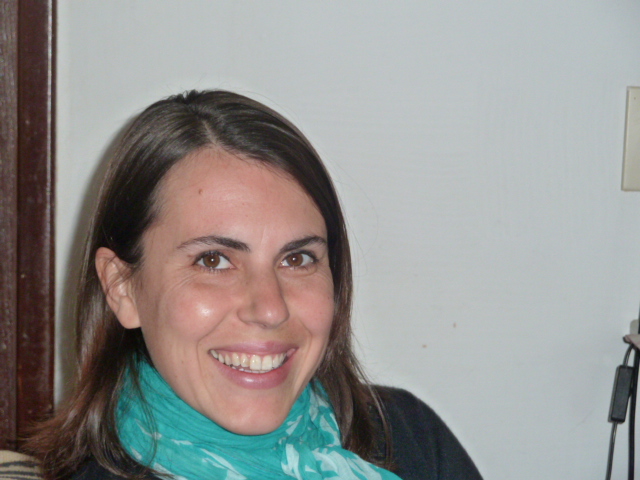My Spiritual Journey in Pastoral Ministry – by Carola Tron Urban
As I think about women in pastoral ministry, I would like to share some of my experiences as one of them.
I started very young to study theology, not very conscious about what gender implications would come later on in my career and discernment of my vocation. Perhaps it is because I was only seventeen years old when I moved to ISEDET Seminary in the city of Buenos Aires.
Even though there was not too much academic discussion in seminary classes on gender and feminist topics, on my own I began to discover some of the literature that raised these issues. I also started to observe the women pastor models in my church. Almost all of them where working as co-pastors with their pastor-husbands. None of them were in charge of a congregation full-time. They were part-time, mostly working in social projects, gender issues like domestic violence, or managing the education ministry.
I also discovered that inclusive language was not accepted at that time by men – and was surprised to realize that women in leadership didn’t accept it either. Most of the concepts of feminist theology were far removed from the active models of the church.
For me, this felt like good news. I thought: “Wow! I am so lucky my boyfriend is a theology student. That is great for a future women pastor!” I felt safety!
The Waldensian Church where I come from has its roots in Italian immigration. Most of the current congregations are located in rural areas, with strong identities linked to the family-based and patriarchal concepts of working the land. It is in this kind of context where I took my second big step in ministry. Working in a local church, I was a full-time pastor; my husband shared in the ministry on a part-time basis, We shared our ministry in a local congregation. Our first experience together and as ordained pastors was hard. I could tell you many stories about the role, but what I remember most was a simple painful and constant question to me: The pastor? (y el pastor¿). At the very beginning I used to answer with a smile in my face… “Oh.. he is doing well, thanks for asking…”. But after a while, I started to think deeply about this reiterated question. What did it mean? What did they expect me to answer?
In Spanish the nouns have gender. When somebody was asking for the pastor (el pastor, not la pastora), I realized it was an unconscious way of telling me that the need for a pastor meant the need for a male pastor.
The most remarkable and complicated situation was for wedding blessings. Every time I had to offer a wedding blessing, there was complaining. I started to notice that some people would come to the pastoral office and ask directly for my husband to do the special service. People loved to see a man in the pulpit extending the blessing to the marriage with a black jacket and a nice tie (as pastors in the Waldensian Church in Rio de la Plata do not wear clerical clothes).
What I am telling now in a funny way it took me hours of therapy and reflection about my vocation and role and acceptance in the congregation. It took a growing awareness of a type of institutional violence authorized by a consistory that was not quite supportive of me and my role. And the most important process was within the family, especially sharing this process with my husband. It was very challenging and we grew a lot as a couple. We learned how to be supportive to each other.
It took me a while to figure out that I was setting a new model of being a woman pastor. I was ready to do everything expected from the role – no matter that I was a woman. The community was not ready yet.
Now at a distance from this specific story, I strongly believe that today we need process what it means to be a pastor through the lens of gender. What is going on with the new generations? I suspect that some of the women that really want to serve in ministry are afraid of the costs that this will require in their lives. The facts of low salaries, itinerancy and patriarchal models are a heavy load to carry. Are these facts some of the reasons why many women pastors have abandoned their careers?
What about “the new masculinity” and “complementary gender concepts”? This “post-feminist” era in which we live comes with some mistaken assumptions like: “our sisters in the past have already achieved what we need for gender justice.” Wrong. We still have to work on women’s ordination for approval in some Protestant churches. If we are not critical to the system that continues discussions about women ordination without moving to ordain women, we are not honouring the heritage we have received from the past.
After ten years of ordained ministry, I give thanks to God. I continue serving as pastor in another congregation in Uruguay, and after seven years of service I have just been re-elected for seven more years as full time pastor. When somebody comes to my office, they will ask for la pastora. People know in this church there is a pastora.
As women we have many different gifts to share for the construction of communities, particularly in pastoral care and organizational issues. We have the capacity to deal with several things at the same time.
Sometimes this strength becomes a threat. The community acts in different ways when there is a woman pastor around. She will care for the aesthetic of the temple, while if there is a male pastor some nice lady will assist him with those details… But for sure there are many positive examples of this diversity that comes from the gender perspective and makes the community grow in healthy ways The process of liberation can be painful sometimes, but is necessary to walk as nearest as we can to the Kingdom of God.
I pray and hope, my little sisters and brothers preparing for ministry, that you may receive the strength to walk and to not give up.


